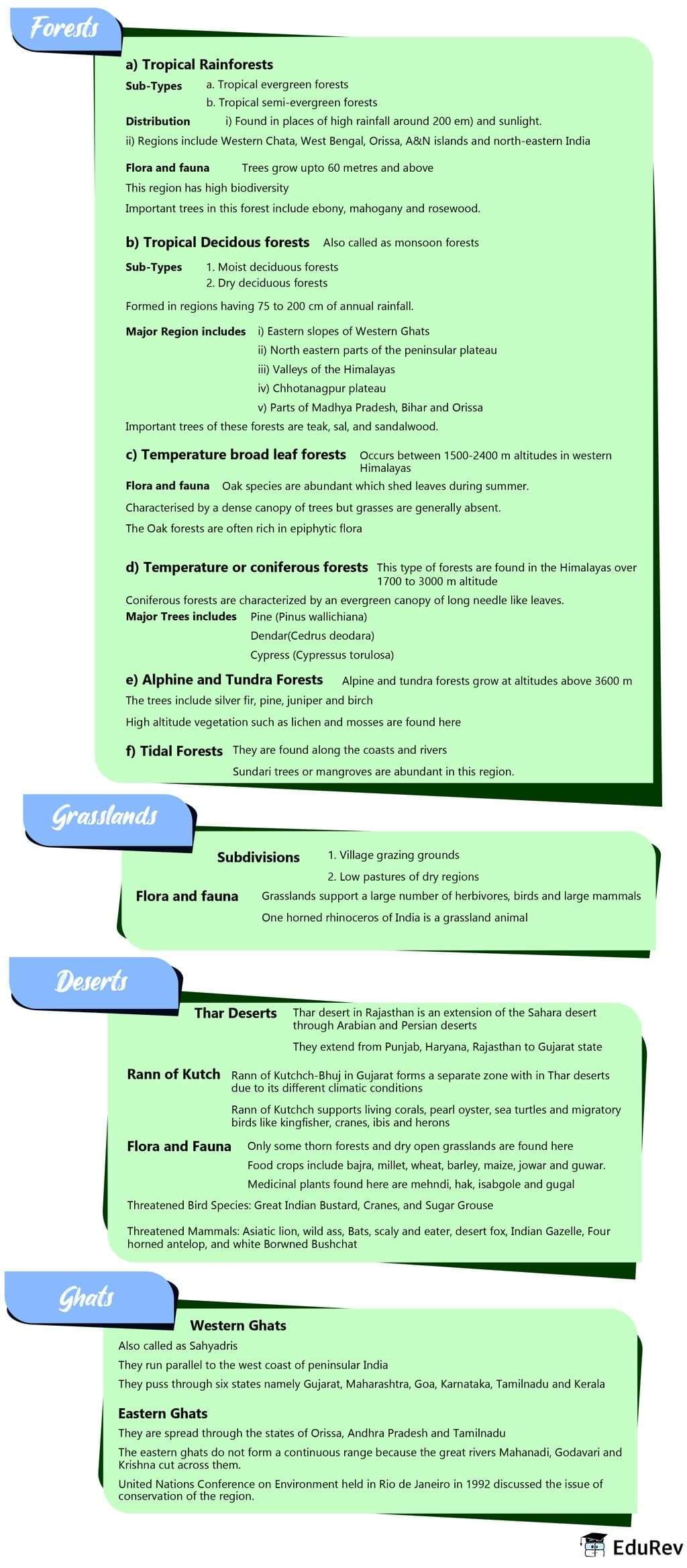UPSC Exam > UPSC Notes > Environment for UPSC CSE > Mind Map: Terrestrial Ecosystems
Mind Map: Terrestrial Ecosystems | Environment for UPSC CSE PDF Download

The document Mind Map: Terrestrial Ecosystems | Environment for UPSC CSE is a part of the UPSC Course Environment for UPSC CSE.
All you need of UPSC at this link: UPSC
|
119 videos|306 docs|82 tests
|
FAQs on Mind Map: Terrestrial Ecosystems - Environment for UPSC CSE
| 1. What are terrestrial ecosystems? |  |
Ans. Terrestrial ecosystems refer to land-based ecosystems that include forests, grasslands, deserts, tundra, and other habitats where plants, animals, and microorganisms interact with each other and their environment on land.
| 2. How do terrestrial ecosystems contribute to biodiversity? |  |
Ans. Terrestrial ecosystems support a wide range of plant and animal species, contributing to biodiversity. They provide habitats for various organisms, promote genetic diversity, and play a crucial role in maintaining ecological balance and ecosystem services.
| 3. What are the main threats to terrestrial ecosystems? |  |
Ans. Terrestrial ecosystems face several threats, including habitat loss due to deforestation, urbanization, and agricultural expansion, climate change, pollution, invasive species, and overexploitation of natural resources. These threats can have detrimental effects on the health and functioning of terrestrial ecosystems.
| 4. How are humans impacting terrestrial ecosystems? |  |
Ans. Humans are impacting terrestrial ecosystems through activities such as deforestation, habitat destruction, pollution, and overexploitation of natural resources. These activities can lead to the loss of biodiversity, disruption of ecological processes, and degradation of ecosystem services.
| 5. How can we conserve terrestrial ecosystems? |  |
Ans. Conservation of terrestrial ecosystems can be achieved through various measures such as protected area management, sustainable land use practices, reforestation, restoration of degraded habitats, reducing pollution, promoting sustainable agriculture, and raising awareness about the importance of biodiversity and ecosystem conservation.
Related Searches
















